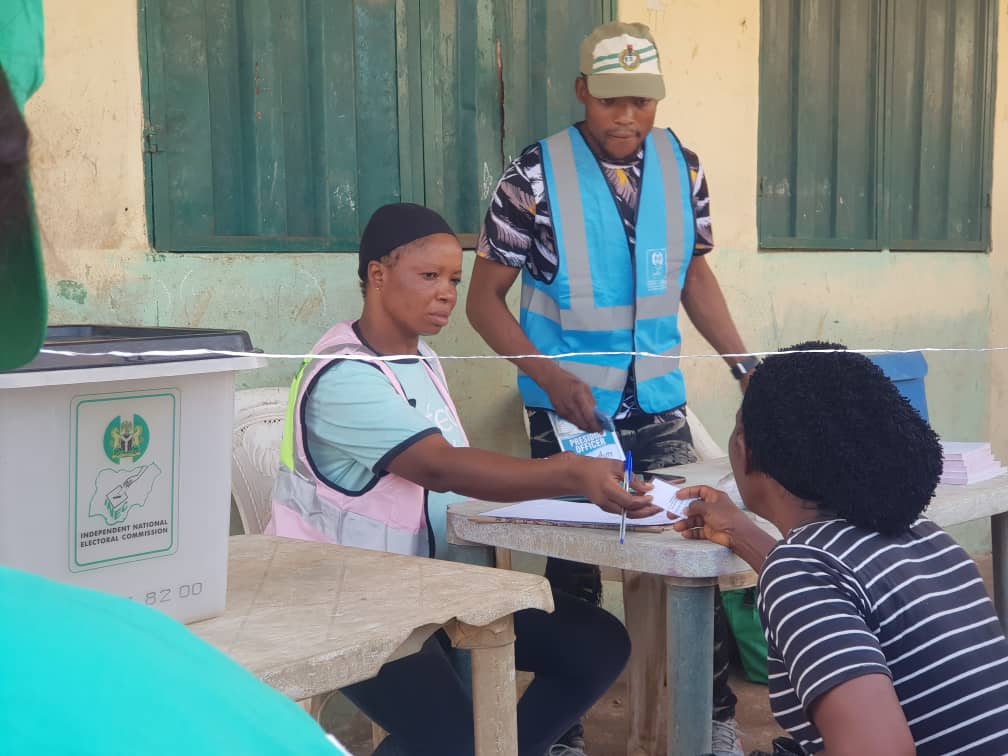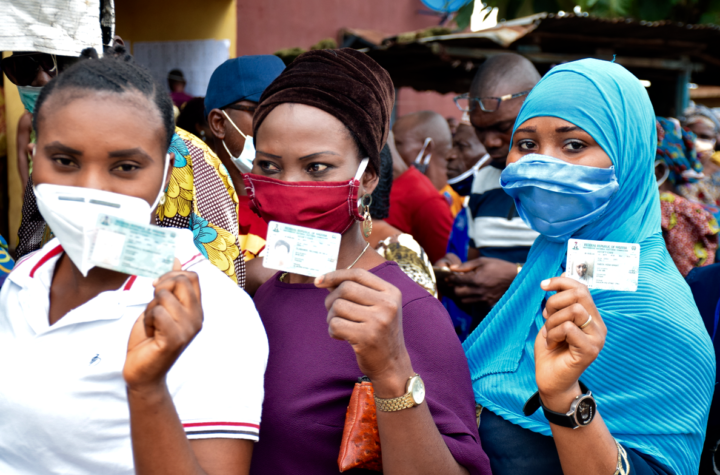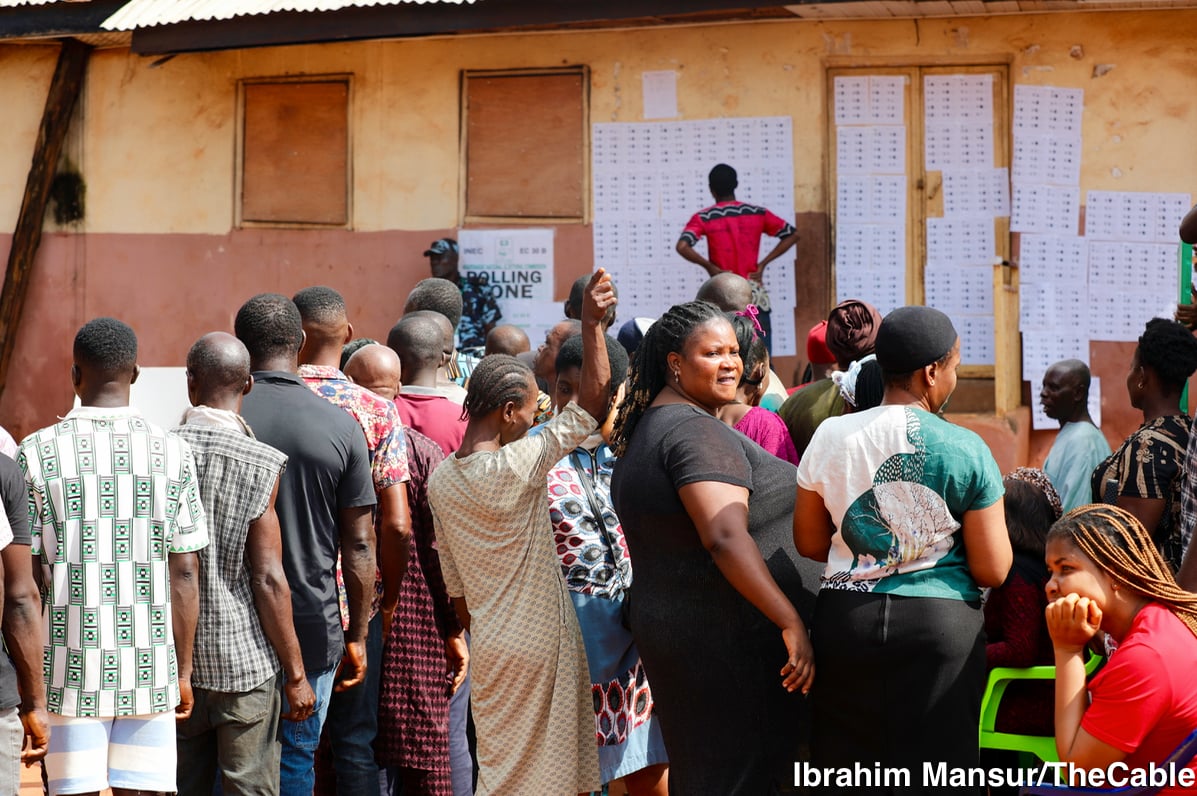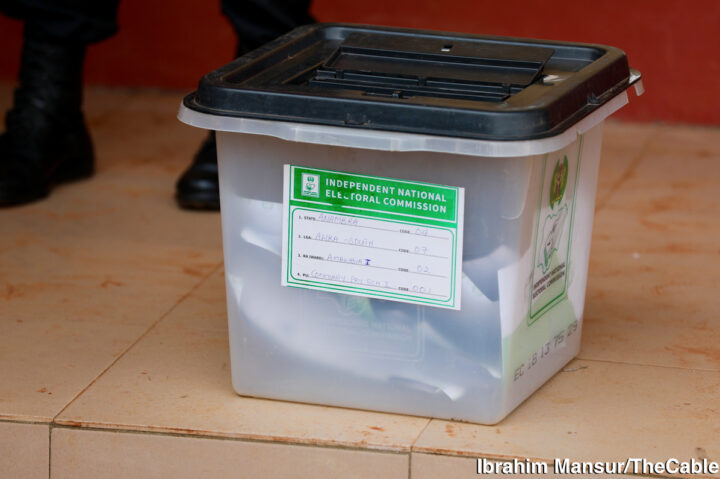BY MOSHOOD ISAH
It is quite contradicting that the elections closest to the people are the ones that people are either least interested in or are even oblivious of. A typical Nigerian voter gets more excited about who becomes the president or their governor rather than the election of a chairman or councillor whose office is a stone’s throw from their residences. In most cases, a lot of citizens seem not to be aware of the role of councillors and chairmen of their local councils — which makes it even more difficult to demand accountability and good governance.
Twenty-two years after the return of democracy, local government areas in Nigeria struggle with poor governance, the absence of periodic and credible elections, and almost non-existent governance structures that promote citizen engagement and accountability. This reality was glaring during a community outreach by Yiaga Africa in the Gwarimpa community located at the Abuja Municipal Area Council (AMAC) and Dutse market in the Bwari area council ahead of the February 12th council elections in the federal capital territory (FCT). The outreach revealed that an average resident is anticipating the 2023 general election while oblivious of area council elections which will determine leadership at the local level.
Another major takeaway from recent engagement with residents revealed how agitated and disillusioned Nigerians have become about governance especially at the local level. There are major complaints about multiple taxations by taxi drivers, Keke Napep drivers, market men and women, store owners, and other challenges of poor infrastructure such as primary healthcare and basic education in local communities, among others. Just as it is in most states in Nigeria, there are constant calls for improved governance in the FCT, especially in the area of infrastructure and issues around multiple taxation. This is even as residents battle to understand the role of the area councils.
Advertisement
However, residents do not either seem to know who to make these demands to or are tired of banking on unfulfilled promises over the years. But another important thing citizens are yet to realise is that they have the power to vote out underperforming representatives and vote in leaders they can call to account for their stewardship. For example, there are resources that are allocated to local councils monthly that must be accounted for; yet, citizens hardly are able to hold leadership at this level accountable for how they manage these resources. This is why the conduct of periodic elections is important as it provides an opportunity for engagement especially in empowering the people to choose their leaders.
Being the only ‘state’ where the Independent National Electoral Commission (INEC) conducts local government elections, the FCT area council elections have been consistently conducted every three years to fill the position of six chairmanship positions and 62 councillors’ positions. This is unlike the inconsistencies or complicities that has characterised other State Independent Electoral Commissions (SIECs) where the worst fate of local government areas in Nigeria remains the overbearing control by state governors and a select few power brokers who have perfected a system that both impoverishes the people and denies the people a voice when the elections are rigged. Thus, elections conducted by INEC are expected to be more transparent and credible due to the robust legal framework that guides conduct of elections by INEC unlike other states where electoral frameworks have become archaic and the SIECs lack independence.
Despite this, voter education campaigns by election stakeholders especially political parties and INEC have been poor. This has largely contributed to low voter turnout especially in elections at this level. There is little or no campaigning, low voter mobilisation and publicity by political parties participating in the election, which inevitably leads to low voter turnout. This was evident in the lack of awareness of the LGA election in the FCT. It goes without saying that the LGA election which is considered closest to the people has not received the intensive grassroots campaign for citizens’ participation in the process.
Advertisement
Despite these challenges of low voter turnout in LGA elections, there are opportunities for election stakeholders to intensify their voter mobilisation role and increase citizens’ participation in the process. Thus, the upcoming area council elections on February 12, 2022, is another opportunity for election stakeholders, especially the election management bodies, the security and indeed the citizens to change the negative narrative that has obscured these elections in recent times. Most importantly, it is an opportunity for citizens to vent their anger at the polls, vote for responsible candidates and vote out underperforming leaders.
The FCT area council elections will be held across all six area councils: AMAC, Kwali, Kuje, Gwagwalada, Bwari and Abaji and in all sixty-two wards in the FCT. Four hundred and seventy-three (473) candidates are contesting for the six (6) chairmanship positions and sixty-two (62) councillorship positions.
There are over one million, three hundred thousand (1,373,492) voters registered in the FCT. Every single vote is vital to the emergence of responsible leaders in the various Area councils and wards in the FCT. Thus, this is a clarion call to these voters in the six area councils and 62 wards where elections will be conducted to come out in their numbers and exercise their franchise by electing responsible leaders of their preference, knowing that their votes matter and their votes will count.
Moshood Isah is the media officer of Yiaga Africa. He tweets @moshoodpm
Advertisement
Views expressed by contributors are strictly personal and not of TheCable.
Add a comment






